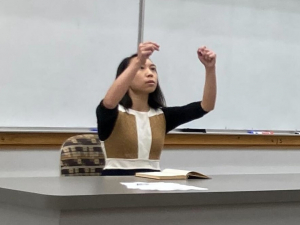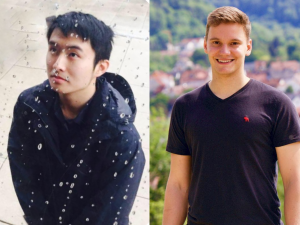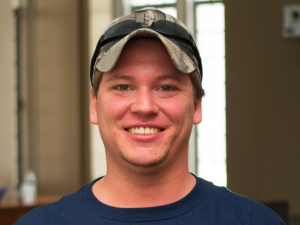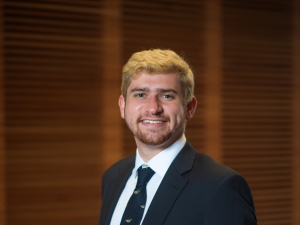What Distinguishes the Duke Math PhD Program?
Our Environment
- The department is warm, collegial and spans many areas of pure and applied mathematics. This is reflected both within the various research groups, and in strong multi-disciplinary activities. Many faculty and students take part in multiple research groups (both among fields within the math department and in interdisciplinary collaborations, including with the school of medicine, engineering, physics, statistical science, computer science and other fields). This is both wonderfully stimulating and very important. Mathematics is a deeply interconnected subject, and many of the most productive and creative mathematicians often leverage these connections. Being a math polymath sounds redundant :)
Our Curriculum
- In addition to our regular sets of graduate level courses, every semester, the department runs research-level mini-courses. These are short courses that supplement the standard graduate catalog with a range of material running the gamut from new approaches in established areas of theory (e.g. harmonic analysis) through to recent developments and open questions in mathematics (e.g. classical algebra and quantum computing). They are sometimes launching pads for working/reading groups. They run 4-5 weeks (a third of the semester), and are attended by interested students, post-docs and faculty.
Our research seminar series also provide invaluable learning opportunities as visiting speaking present their latest results. We also support student-run, student-lead activities like the Triangle Area Graduate Mathematics Conference (TAGMaC).
Our Professional Development Activities
- The department's focus on Professional Development covers a range of topics, including: teaching (beginning with Math 772: Teaching College Mathematics I, taken by all incoming graduate students), writing (e.g. research statements and grant proposals), speaking (e.g. seminar talks and job talks), internships, the job search and interview process. The department is a member of The Erdos Institute, which helps math PhDs explore and prepare for careers beyond academia. Additional guidance on careers in business, industry and government is available though the BIG Math Network.
These are some of the representative indicators of the engaging, expansive and stimulating nature of the mathematics community here, making the department a wonderful place to work, learn and begin developing your research program and mathematical career.




























